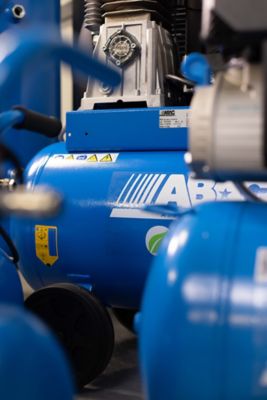In the world of automotive maintenance, air compressors are the unsung heroes that power a multitude of processes. From inflating tyres to painting and detailing, automotive air compressors play a crucial role in ensuring efficiency, precision, and quality. In this comprehensive guide, we will delve into the various aspects of automotive air compressors, their types, applications, and benefits, helping you understand their importance and how to choose the right one for your needs.
What is an Automotive Air Compressor?
An automotive air compressor is a device that converts power into potential energy stored in pressurised air. This compressed air is then used to power various pneumatic tools and equipment essential in automotive maintenance. The reliability and performance of these compressors are critical, as contaminants in the air supply can lead to costly product spoilage and re-work.
Types of Air Equipments
Piston Compressors
Piston compressors are one of the most common types used in automotive applications. These compressors are known for their robust design and versatility. Typically, they present a viable solution for small to medium-sized body shops that do not require high volumes and steady airflow.
Rotary Screw Compressors
Rotary screw compressors are widely used in the automotive industry due to their efficiency and reliability. They are ideal for the most demanding tasks such as running several tools in a large workshop or a car wash with multiple stations thanks to their ability to efficiently provide high volumes of compressed air consistently.
Oil-Free Compressors
Oil-free compressors rely on alternative materials and designs to minimise friction. These compressors are ideal for settings where maintaining air purity is crucial, such as in vehicle painting applications, thanks to their oil-free operation.
Air Treatment Solutions
Air treatment ensures the smooth operation of equipment and achieve high-quality results. Oil and moisture contamination in compressed air can damage sensitive tools, affect paint finishes, and reduce the lifespan of your systems. Proper filtration, and moisture separation prevent these issues, ensuring consistent performance, improved productivity, and a higher standard of work in every application.
Key Features of Automotive Compressor
When selecting an automotive air compressor, several key features should be considered:
- Air Quality: High-quality air is essential to prevent contaminants from affecting the final result.
- Flow Rate and Pressure: The compressor should provide adequate flow rates and pressures to meet the demands of various applications.
- Efficiency: Look for compressors with variable speed options to optimise energy consumption.
- Reliability: Choose compressors from reputable manufacturers known for their durable and reliable products.
- Maintenance: Consider the ease of maintenance and availability of parts and services.
Automotive Applications
Tyre Maintenance and Tyre Inflating
Air compressors are indispensable for tyre maintenance tasks such as inflating tyres to the correct pressure. This not only ensures optimal vehicle performance and fuel efficiency but also improves safety on the road.
Painting
Painting is a critical step in automotive maintenance, requiring a consistent and high-quality air supply. Automotive air compressors provide the necessary pressure and flow rates to power paint sprayers, ensuring a smooth and even application of paint. Oil-free compressors are particularly beneficial in this application to avoid any contamination.
Washing, Cleaning, and Detailing
Air compressors also play an important role in the washing, cleaning, and detailing of vehicles. They can power high-pressure washers and cleaning tools, allowing for thorough cleaning of a vehicle's exterior and interior surfaces. This helps maintain the vehicle’s appearance and longevity.
Benefits of Using Body Shop Air Compressor
Using air compressors in automotive workshops offers several benefits:
- Efficiency: Compressed air tools are generally faster and more powerful than their electric counterparts, reducing the time required for various tasks.
- Versatility: Air compressors can power a wide range of tools, making them suitable for multiple applications.
- Cost-Effectiveness: While the initial investment may be higher, the long-term operational costs are lower due to reduced energy consumption and maintenance requirements.
- Precision: Pneumatic tools offer better control and precision, ensuring high-quality results.
Choosing the Right Air Compressor for Your Needs
Selecting the right air compressor depends on several factors, including the specific applications, required flow rates and pressures, and budget. Here are some tips to help you make an informed decision:
- Assess Your Needs: Determine the primary applications and the tools you will be using. This will help you identify the required flow rates and pressures.
- Consider the Environment: If air purity is critical, opt for oil-free compressors. For general applications, lubricated compressors may be more suitable.
- Evaluate Efficiency: Look for compressors with variable speed options to optimise energy consumption and reduce operating costs.
- Check Reliability: Choose compressors from reputable manufacturers known for their durable and reliable products.
- Plan for Maintenance: Consider the ease of maintenance and availability of parts and services.
Common Questions About Automotive Air Compressors
Yes, automotive air compressors can be used for a variety of DIY car maintenance tasks, such as painting, tyre maintenance, and car washing. Properly selected compressors can provide the necessary pressure and consistency for professional results at home.
Automotive air compressors provide consistent power levels for pneumatic tools, ensuring precision and efficiency in various tasks. They support tasks ranging from tyre inflation to cleaning and painting, making them versatile tools in the automotive industry.













